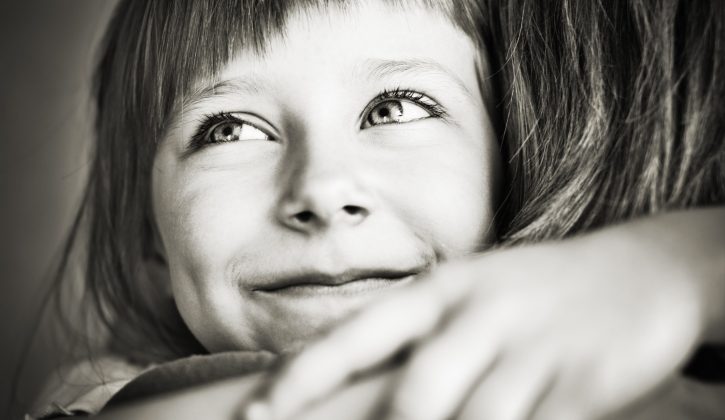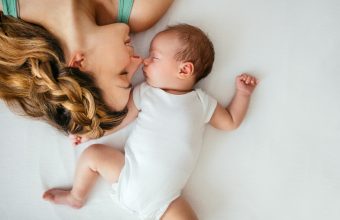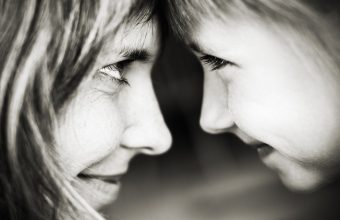Two weeks ago at the hair salon I heard two women discussing their fertility challenges.
They’d both been trying for a long time. One had just completed her second round of IVF and concluded the conversation with a sigh and a resigned “Well, if it doesn’t work, I guess there’s always adoption.”
This comment hit me like a punch to the gut.
Both my daughters are adopted and one of my biggest fears is they will think they were our last resort, our booby prize.
Although my blood was boiling and my heart was pounding, I resisted the urge to spin around and educate this woman on the callousness and insensitivity of her remark because the truth is, most people see adoption as a last resort.
I think I’m one of the few women who, when faced with the difficult task of getting pregnant, skipped fertility treatments and went straight to adoption. I’d never wanted to be pregnant, always saw it as a means to an end. My husband and I got married with no firm plan for kids. We’d had the “if, how many, and when” conversations in very vague terms but we weren’t following pre-determined path.
We’d been married a year, I was 32 and he was 35, when we decided to go off the pill. I knew it might not happen right away. It was August so I resigned myself to the fact that it might be Christmas before I was pregnant.
As I watched my pills spin around and around then disappear down the toilet into which they’d just been flushed, I thought about how I’d tell my mom. Maybe a little onesie or “World’s Best Grandma” t-shirt under the tree?
Needless to say I wasn’t pregnant by Christmas. Or the Christmas after that. By the following spring, now almost two years into an increasingly futile “operation impregnation,” nothing was happening. But trying to get pregnant had put me more in tune with my body so I was finally paying attention to the horrific monthly periods and the myriad of other signs that something wasn’t right.
When I finally saw my doctor he palpated my abdomen for approximately five seconds before getting on the phone and scheduling an emergency ultra sound. What followed was a trip to the ER, diagnosis of a grapefruit-sized “mass” on one of my ovaries, a whole bunch of weird medical procedures, cancellation of a planned surf trip to Costa Rica, blood clots in my lungs and the words “we need to be prepared for cancer” from my physician.
Fast-forward six weeks to the post-surgery recovery room where I got the best news of my life: we were wrong, there’s no cancer. The physical recovery was awful but mentally I fared even worse. Relief, confusion, post-traumatic stress and a whole bunch of “what the actual f**k just happened” type of feelings were layered on post-oophorectomy hormones creating a big, giant crazy Jen sandwich.
My medical issues had obviously thrown a wrench into our pregnancy plans but we did consult a specialist who told us we should have no problem conceiving and carrying a child, we’d just need a little help to get there. But that wasn’t a route we wanted to take. My body had had enough poking and prodding and the idea of more hormonal imbalances and needles in my butt sounded completely terrible.
Because of what we’d just been though (not to mention my questionable mental state), my husband made me promise I would let the dust settle and wait at least six months before considering adopting.
I gave him two.
Nine years later we are the proud parents of two beautiful girls, aged seven and ten. Our daughters are not biologically related but they bicker like they are.
There are many misconceptions about adoption but the biggest one might be that all adoptive parents feel cheated, that adoption was their last resort. I did not experience the intense grief that comes from prolonged infertility, but I’ve seen it: it’s real and it’s heartbreaking. But what I think these women are mourning is their inability to experience pregnancy and to create life with their partner, not the fact that adoption is now their only route to parenthood.
This is an important distinction, especially for the children involved. If I could convince my daughters of one thing, it’s that I wouldn’t change a thing. And this isn’t hindsight talking. This isn’t “now that I know you and love you I can’t imagine doing it any other way.” This is fact. I wanted to be a mother and I didn’t care how I got there.
I don’t love my children any less because they didn’t grow inside me. Parenting is about much more than biology.
Thankfully the world is moving in such a way that we feel less and less compelled to identify each other according to constructs like gender and sexual orientation. I hope the same will hold true for parenting: don’t ask me who I sleep with and I won’t ask you about how you became a mother. Not because I don’t care, but because it doesn’t matter.
I know lots of adoptive parents who call their children a “chosen child.” They explain adoption by saying they, or God, chose that child specifically, which is supposed to counter the idea that children are being adopted because they’re unwanted. It’s a wonderful sentiment but it’s also a euphemism that intentionally obscures the truth thereby indicating a level of discomfort with that truth.
I don’t tell my children they were chosen because it isn’t true: the agency “chose” them and we said “yes, yes, oh my goodness yes!” as soon as we saw their pictures and realized they could be ours.
It’s okay to admit you were disappointed you couldn’t have birth children and/or that you were initially unsure about adoption. Grief over not being able to have something that’s important to you and fear of the unknown are common emotions that most of us understand. They are nothing to be ashamed of.
A sentiment like “I guess there’s always adoption” isn’t necessarily a bad one, it just needs a little more finesse; a little more love, a little more heart and a little more explanation. Adoption is wonderful because it opens us up to conversations like these. It empowers and emboldens us to change opinions and challenge common misconceptions.
Best of all, adoption gives us the opportunity to demonstrate how something awful can become something beautiful; and how the worst things can sometimes turn into the best things.
Tagged under: Parenting,adoption,infertility
Category: parenting






